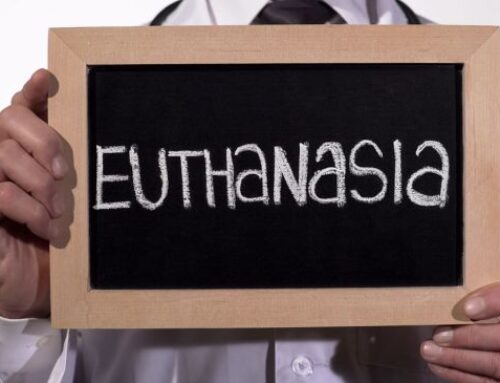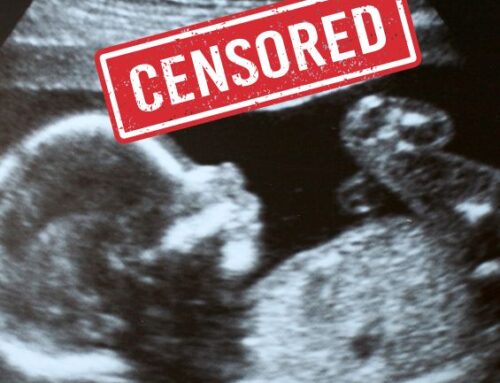Josie Luetke:

Interim writer, Josie Luetke, Talk Turkey
I remember finding it so ironic seeing a Planned Parenthood poster in Rory Gilmore’s dorm room, given that there would be no Rory Gilmore—and no Gilmore Girls television show for me to watch—had Rory’s mom gone to Planned Parenthood when she got pregnant at 15. There is no story to tell when you’re dead.
I felt a similar sense of irony watching the new documentary In My Own Time, co-directed by Sandy Clipsham and Blair Cameron of Ward 1 Studios, and supported by Dying with Dignity Canada. I found that it was more about living than it was about dying. (Indeed, it brands itself a “life affirming film about death.”)
Even though it was produced to sell us all on “MAiD” (i.e. euthanasia), if the film only looked at this procedure—from sedation to final exhalation—it’d be over in ten minutes. So, instead, we get horseback riding, tattooing, mimosa-making, and skydiving (like I said, living). That strikes me as cheating.
The title is misleading too. The punchy and show-stealing cancer patient Erin Milligan ends up dying naturally on July 22 in Regina, at God’s timing, “before MAiD could be provided.”
And those profiled in the film who did choose euthanasia, like Audrey Parker from Halifax and Brian Oliveira from Toronto, still did not actually die when they wanted to, “in their own time”—it is their respective diseases which hastened them (though Parker also blamed the law).
Interviewees, including patients and their families and medical and legal experts (most notably professor Jocelyn Downie), repeatedly bring up control—gaining it, losing it.
But no, you are not in control. None of us are, although I’m sure some MAiD practitioners can delude themselves otherwise when the agent of death is at hand—execution only a push of a finger away.
So, the patient recruits someone to kill them, and for a moment, they possess an illusion of control, of returning to the “driver’s seat,” of gaining back something, which, again, none of us ever really had.
Dying with Dignity Canada asserts that In My Own Time “offers perspectives on medical assistance in dying (MAID) less commonly seen in media reports” as if the mainstream media hasn’t likewise been pushing the envelope on and lying about this issue for decades.
I watched the film in part because I saw the trailer, in which Milligan wryly remarks, “I’m like a jar of pickles that’s been on the shelf for 30 years now and somebody should eat me soon or throw me out.”
She’s funny.
And I wish I could leave the joke be, for obviously, she’s not a jar of pickles.
In fact, it was apparently upon her diagnosis with stage 4 pancreatic cancer, that she started living again, and became “genuinely happy”—a pickle in her prime.
But this is a pro-euthanasia film, so, for the record, none of us ought to be thrown out. There’s nothing empowering about that, and our expiry date is no sooner than the Good Lord sets it.
What’s interesting is that Milligan also discusses how she had a younger sister who was diagnosed with ovarian cancer, and because she had been living in a different province than family at the time, “she suffered alone.” Milligan says that “had MAiD been an option for her, we would have all gladly signed on.” Instead, her sister died “in the worst way possible—in pain.”
Granted, I’m still breathing, but I can’t help but think dying alone would have been worse, actually, and euthanasia wouldn’t have changed that.
The Dying with Dignity Canada staffer who welcomed us at the beginning of this second of three virtual screenings claimed there were over 1000 registrants. I wondered what they all were thinking at the same time I was thinking my thoughts. Were they even thinking? Or were the claims of these unreliable but sympathetic narrators being lapped up like milk? It is sour, though.
Sometimes the space between a lie and truth and life and death seems so deceptively small that it can be blurred. And other times, I think I’m reading what I want into a situation.
Oliveira, limited greatly in movement and painstakingly intentional with his words, seeks out euthanasia due to a degenerative disease called Spinocerabellar Ataxia Type 3. He says, “What made me think about MAiD was the fact that I can’t do nothing for myself anymore.” His wife Sari says, “You get tired of fighting,” but then I see her face when he says it’s “finally going to be over,” and that looks to me like a woman who is thinking anything but “finally.”
At another point in the film, Andy, one of Milligan’s loved ones asks, “Are we going to be honest here?” The answer is no. In the end, the filmmakers weren’t really honest, because honesty is not a callous cynicism that says with a twang, “we can’t fix f***ed,” or a cold “realism” that treats people like expired pickles. It’s also not the honeyed sunlight on the grass at the end of the film and the MAiD practitioners intoning “peace,” “love,” and “grace” into the camera.
I worry the film is effective as propaganda. In the end, that’s what matters.




